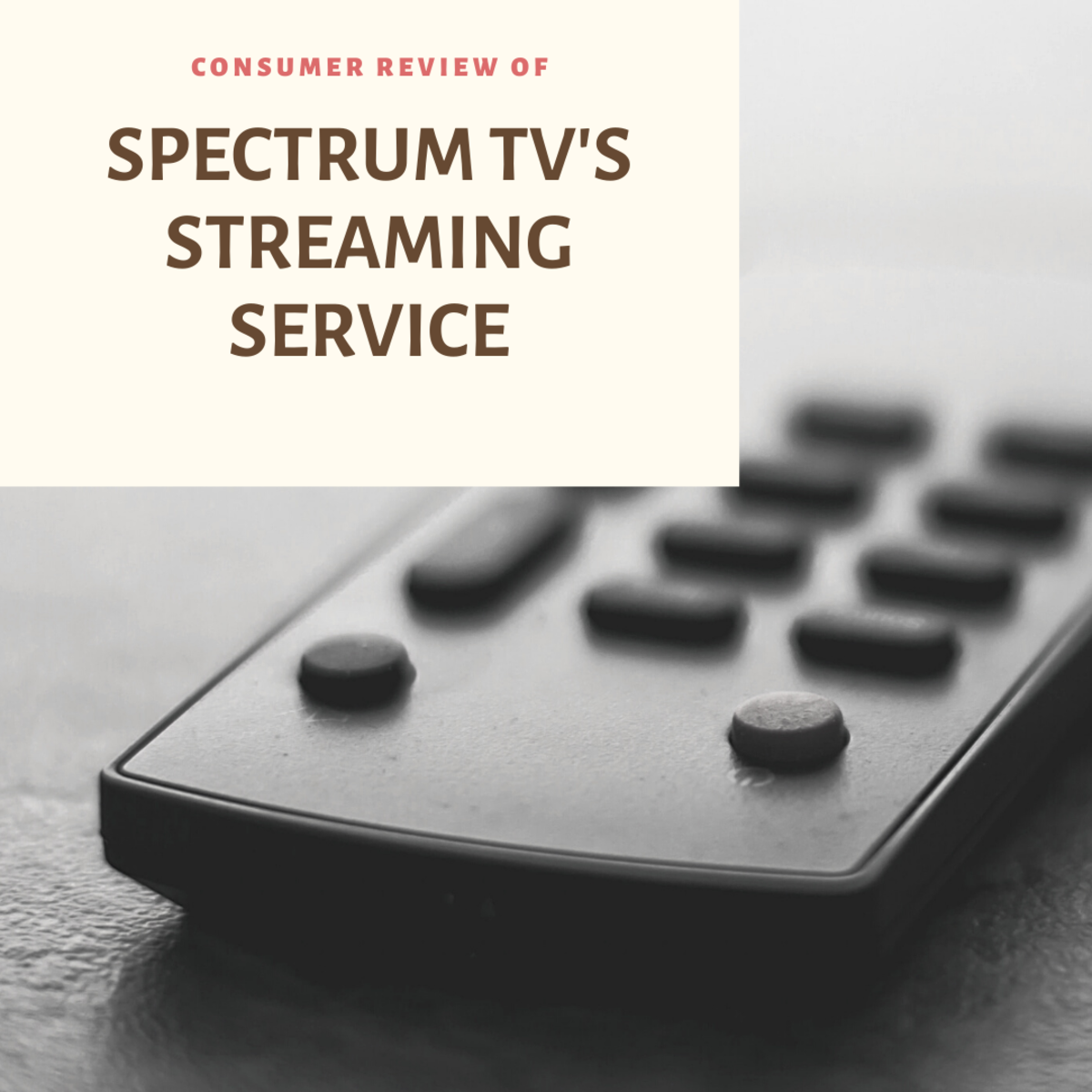Cable and Dish TV Systems (Part 5 of a Series on Corporate Greed)
That Was Then
Time was when cable TV was commercial-free, or nearly so, depending on your provider. You paid for the cable service, and in return got to watch movies and some extra channels not broadcast in your local area. There were far fewer commercials on cable because it was paid for in large part by subscriber fees. That was the good old days, before digital TV; before personal computers; before cell phones.
There was probably only a single carrier in any given metropolitan area, and it is true, there were many areas not served by this fledgling industry. Installers were courteous, and knew their trade. The office, should you have a problem, allowed actual living people to answer the telephone. These people were also courteous, and also actually listened to you, and routed your call to the proper department.
It was a viable alternative to commercial television.
This Is Now
How times change. Now we have many multiples of options for viewing TV shows and movies. Besides our living-room TV sets, we have our personal computers, both desktop and laptop; 'smart' phones; tablet computers, (all of which are now capable of 'live streaming' from the internet); DVR's, and for the old die-hards, there is still, for now at least, "let's go to the movie theater."
No matter the delivery system, I personally prefer to watch a program or movie in comfort, in my living room, on the widescreen TV, and not hunched over my desk at the computer, or worse, squinting at a little 2" x 3" screen!
That's where the cable companies come in, followed closely by the new kids on the block, satellite signals, (dish systems). Ok, so satellite has been around quite a few years, and has progressed substantially in miniaturizing its equipment from the originals, whose reception dishes occupied one's entire backyard! Still and all, cable was first on the scene. But, it matters not--the same problems apply to both.
Different Products, Different Companies: Same Corporate Greed
The escalating problem with both cable and dish TV systems' technologies is this: they both now have as many, and on some channels, more commercials than regular broadcast TV! In effect, you are paying them to pump commercials into your home!
As if this were not bad enough, their monthly rates are quite high (and that is a charitable understatement). Sure, they'll advertise 'teaser rates' fo new subscribers all the time. Just ask them what the real rates are, 6 months or a year down the road! Not so cheap anymore. These high rates, augmented to be even higher by assorted surcharges and fees, supposedly levied by the governement, are in addition to the money they earn from all those commercials! This amounts to double-dipping! It is--greed.
There is no good reason for many of the charges they impose. For instance, the converter box that allows you to recieve the signal is theirs, and remains theirs. When and if you cancel your service, they want it back. Why? By the time you've had cable for a few years, you've paid them in lease fees well over the actual cost of the box! You should own the fool thing by then! When you do turn it in, it will be re-leased to some other subscriber, who will continue to pay them for equipment for which they've been repaid in full many times over! This is just one are where the consumer is being scammed and ripped off.
Yes, technology changes, and new boxes are sure to be developed. They could just as well offer you a pro-rated upgrade, and let you make the payments on your bill just as always, with the exception that at the end of a certain period, you now own the newer box instead.
You must watch them, however. They want to charge you if you fail to turn in their precious box within thier alloted timeframe when you end your service. You will get a billing for a very inflated amount. Once your service is cut off at their end, the box does you no good, anyway--what's their hurry? We didn't return ours for several months, but let them stew about it, and the converters sat in the garage, all packed up in their pre-paid return boxes, ready to be taken to the UPS drop-off at our convenience, not theirs. Naturally, we got a bill for over a grand! They wanted to claim that the 3 boxes were worth over $400 each! Humbug and rubbish! We ignored the bill, and they eventually got their precious converters back.
Payback Time is Coming!
Have you noticed it's time for these greedy corporations to pay the piper? There is a backlash happening, thanks more to the downturn in the general economy than to any actual consumer action against the cable and dish systems.
Folks are disconnecting from their cable systems in record numbers, turning instead to old-fashioned over-the-air broadcasts via the new digital version of the old "rabbit ears" antennae. These can be had cheaply enough; for between $20 and $70, and this is a one-time expense. You buy it; it's your's, period.
We've gone that route, and we get at least 20 channels to watch with no problems, and no monthly bills to pay. The electricity consumed by today's TV's is far less than with the old CART models, so it's an insignificant cost.
Besides avoiding paying a monthly bill to watch commercials, we also are able to tap into online streaming from other providers, either free or at minimal cost. Why would we stay with the cable company? Why would anyone?
Hundreds of Channels to Watch????
Let me debunk that right at the gate! Each and every one of the cable and dish providers advertise heavily about their 'hundreds of channels.' It is simply not true. It might be true in a very technical sense, but in a practical sense, it is a bald-faced lie.
A very large proportion of their claimed multitude of channels are pretty much useless garbage that very few people want to watch. A short list of examples:
- shopping channels
- foreign-language channels
- movie channels (I'll explain below why these have little value)
- religious programming
While it is true that there are audiences for each and every one of these types of shows, they are not in the majority, therefore, they cost more to produce and air. Enter the "bundled program package" ripoff.
Instead of allowing you to pick and choose from among the offerings for a customized package suited to your own viewing preferences (same exact technology that creates their 'bundle'), you are forced to sign up for one of several offerings, escalating in price at each tier. Naturally, they place the most popular shows in the topmost tier at the highest monthly rate. It may not be illegal, but it most certainly is unethical!
The much-touted movie channels, often with a 3-month 'free trial' period, have little to offer. They are never first-run movies (meaning, they've already had their run in the walk-in theaters, or were made-for-TV movies that have already aired), so for the most part, many people have already seen many of the offerings. On top of that, the so-called "competing" movie channels often mimic each other, and have the exact same movies offered! What is the point in such duplication? It makes no sense.
So, subtract from their 'hundreds' all of the offerings you do not care to watch in your home; subtract again the duplications; then subtract everything you can watch free online or at less cost. What's left? Very little, and certainly not worth the outrageous prices they charge.
Maybe, just maybe, if enough folks give these companies the old heave-ho, they'll figure it out, and re-structure themselves into a more reasonable model. If not, they'll run themselves out of business. And that's how capitalism works: change, grow; read your customers and provide what they seek, or fail.





